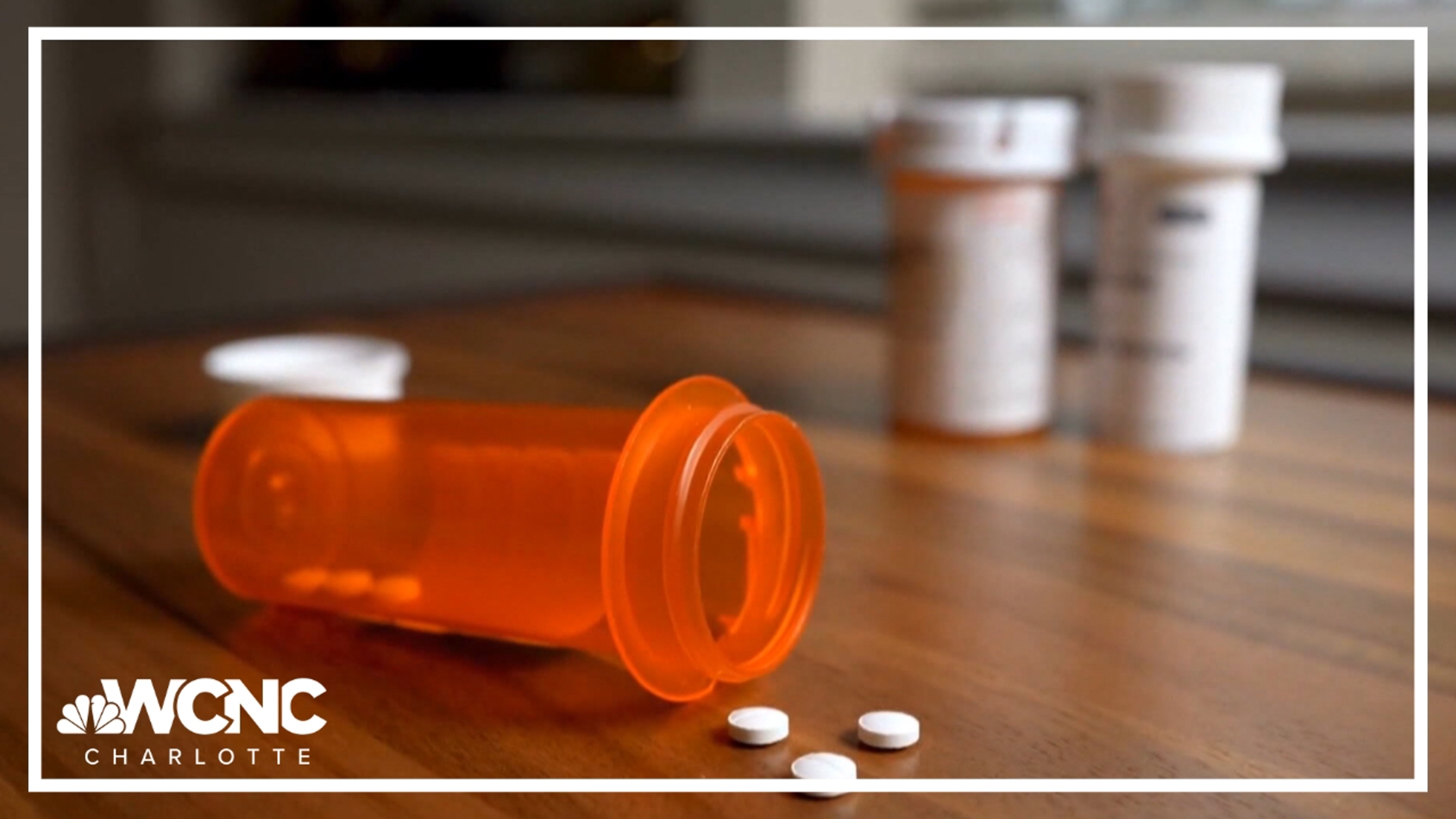CHARLOTTE, N.C. — The Mecklenburg Board of County Commissioners approved the next phase of opioid settlement spending. $5.5 million will go towards multiple recovery programs, with a focus on incarcerated individuals.
This money is just some of the $72.7 million the county will receive through 2038. It comes from multiple major settlements with pharmaceutical companies and drug stores.
The 7 to 1 vote came after much discussion amongst commissioners about the data that went into this decision and the push to make sure the resources are distributed equitably.
"It's not going to be an 18-year commitment. It's going to be a year-by-year evaluation to see where they go. We do have the ability to retract dollars if certain vendors and certain strategies aren't producing outcomes we need," Marcus Boyd said in his presentation to the Board.
WCNC Charlotte spoke with Dr. Raynard Washington, the director of the Public Health Department, about the need he's seen for these investments.
"We're still grappling with the opioid epidemic in this community, across the state and across the country," Dr. Washington said. "Too many people are still dying, and one of the most important things we can do is make sure folks have access to those medications when they're most likely to be able to start, initiate them."
That's why this phase's focus is on the Mecklenburg County Detention Center. $2 million of the proposed spending will go towards medication-assisted treatment (MAT) for people incarcerated in the correctional facility. The goal is to prevent future drug use and future prison time.
"One of the highest risk times for an overdose is when a person is released from a detention center," Dr. Washington said. "We want to make sure that when people are released from the detention center, we have as many harm reduction tools in place."
As for the rest of the initiative, $600,000 of the funds will help with the re-entry process after incarceration. $2.5 million will go towards establishing a Post-Overdose Response Team. $400,000 will go towards continuing their naloxone distribution efforts. You can find the full initiative on the Board's meeting agenda.

